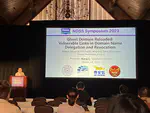
NOTE: THIS IS A PRIMARY README. PLEASE CHECK GITHUB FOR THE LATEST NEWS.
XMap is a fast network scanner designed for performing Internet-wide IPv6 & IPv4 network research scanning.
XMap is reimplemented and improved thoroughly from ZMap and is fully compatible with ZMap, armed with the “5 minutes” probing speed and novel scanning techniques. XMap is capable of scanning the 32-bits address space in under 45 minutes. With a 10 gigE connection and PF_RING, XMap can scan the 32-bits address space in under 5 minutes. Moreover, leveraging the novel IPv6 scanning approach, XMap can discover the IPv6 Network Periphery fast. Furthermore, XMap can scan the network space randomly with any length and at any position, such as 2001:db8::/32-64 and 192.168.0.1/16-20. Besides, XMap can probe multiple ports simultaneously.
XMap operates on GNU/Linux, Mac OS, and BSD. XMap currently has implemented probe modules for ICMP Echo scans, TCP SYN scans, and UDP probes.
With banner grab and TLS handshake tool, ZGrab2, more involved scans could be performed.
Installation
The latest stable release of XMap is version 1.0.0 and supports Linux, macOS, and BSD. We recommend installing XMap from HEAD rather than using a distro package manager (not supported yet).
Instructions on building XMap from source can be found in INSTALL.
Usage
XMap GitHub.
A guide to using XMap can be found in our GitHub Wiki.
Simple commands and options to using XMap can be found in USAGE.
Paper
Fast IPv6 Network Periphery Discovery and Security Implications.
Abstract. Numerous measurement researches have been performed to discover the IPv4 network security issues by leveraging the fast Internet-wide scanning techniques. However, IPv6 brings the 128-bits address space and renders brute-force network scanning impractical. Although significant efforts have been dedicated to enumerating active IPv6 hosts, limited by technique efficiency and probing accuracy, large-scale empirical measurement studies under the increasing IPv6 networks are infeasible now.
To fill this research gap, by leveraging the extensively adopted IPv6 address allocation strategy, we propose a novel IPv6 network periphery discovery approach. Specifically, XMap, a fast network scanner, is developed to find the periphery, such as a home router. We evaluate it on twelve prominent Internet service providers and harvest 52M active peripheries. Grounded on these found devices, we explore IPv6 network risks of the unintended exposed security services and the flawed traffic routing strategies. First, we demonstrate the unintended exposed security services in IPv6 networks, such as DNS, and HTTP, have become emerging security risks by analyzing 4.7M peripheries. Second, by inspecting the periphery’s packet routing strategies, we present the flawed implementations of IPv6 routing protocol affecting 5.8M router devices. Attackers can exploit this common vulnerability to conduct effective routing loop attacks, inducing DoS to the ISP’s and home routers with an amplification factor of >200. We responsibly disclose those issues to all involved vendors and ASes and discuss mitigation solutions. Our research results indicate that the security community should revisit IPv6 network strategies immediately.
Authors. Xiang Li, Baojun Liu, Xiaofeng Zheng, Haixin Duan, Qi Li, Youjun Huang.
Conference. Proceedings of the 2021 IEEE/IFIP International Conference on Dependable Systems and Networks (DSN ‘21)
Paper. [PDF], [Slides] and [Video].
CNVD/CNNVD/CVE. (109/5/22)
CNVD-2021-03270 CNVD-2021-03271 CNVD-2021-03291 CNVD-2021-03312
CNVD-2021-03318 CNVD-2021-03320 CNVD-2021-03326 CNVD-2021-03327
CNVD-2021-03328 CNVD-2021-03331 CNVD-2021-03375 CNVD-2021-03376
CNVD-2021-03380 CNVD-2021-03399 CNVD-2021-03423 CNVD-2021-03424
CNVD-2021-03425 CNVD-2021-03473 CNVD-2021-03495 CNVD-2021-03503
CNVD-2021-03505 CNVD-2021-03507 CNVD-2021-03508 CNVD-2021-03511
CNVD-2021-04817 CNVD-2021-04818 CNVD-2021-04829 CNVD-2021-04830
CNVD-2021-05370 CNVD-2021-05371 CNVD-2021-05372 CNVD-2021-05373
CNVD-2021-05374 CNVD-2021-05375 CNVD-2021-05380 CNVD-2021-05435
CNVD-2021-05470 CNVD-2021-05472 CNVD-2021-05492 CNVD-2021-05493
CNVD-2021-06623 CNVD-2021-06624 CNVD-2021-06625 CNVD-2021-06626
CNVD-2021-06627 CNVD-2021-06628 CNVD-2021-06629 CNVD-2021-08384
CNVD-2021-08385 CNVD-2021-08386 CNVD-2021-08387 CNVD-2021-08388
CNVD-2021-08389 CNVD-2021-08390 CNVD-2021-08391 CNVD-2021-08394
CNVD-2021-08395 CNVD-2021-10397 CNVD-2021-10398 CNVD-2021-10399
CNVD-2021-10400 CNVD-2021-10401 CNVD-2021-10402 CNVD-2021-10403
CNVD-2021-10404 CNVD-2021-10405 CNVD-2021-10406 CNVD-2021-10407
CNVD-2021-10408 CNVD-2021-10409 CNVD-2021-10410 CNVD-2021-10411
CNVD-2021-10412 CNVD-2021-10413 CNVD-2021-10414 CNVD-2021-10415
CNVD-2021-10416 CNVD-2021-10417 CNVD-2021-10418 CNVD-2021-10419
CNVD-2021-10420 CNVD-2021-10421 CNVD-2021-10422 CNVD-2021-10423
CNVD-2021-10424 CNVD-2021-10425 CNVD-2021-12861 CNVD-2021-12883
CNVD-2021-12886 CNVD-2021-12887 CNVD-2021-12890 CNVD-2021-13250
CNVD-2021-13251 CNVD-2021-13252 CNVD-2021-13253 CNVD-2021-13254
CNVD-2021-13255 CNVD-2021-13256 CNVD-2021-13257 CNVD-2021-13259
CNVD-2021-13260 CNVD-2021-13261 CNVD-2021-13469 CNVD-2021-16327
CNVD-2021-16400 CNVD-2021-29189 CNVD-2021-29190 CNVD-2021-29191
CNNVD-202102-570 CNNVD-202103-1624 CNNVD-202104-652
CNNVD-202104-659 CNNVD-202104-697
CVE-2021-3107 CVE-2021-3108 CVE-2021-3112
CVE-2021-3125 CVE-2021-3128 CVE-2021-3173 CVE-2021-3379
CVE-2021-21727 CVE-2021-22161 CVE-2021-22162 CVE-2021-22163
CVE-2021-22164 CVE-2021-22165 CVE-2021-23238 CVE-2021-23268

















